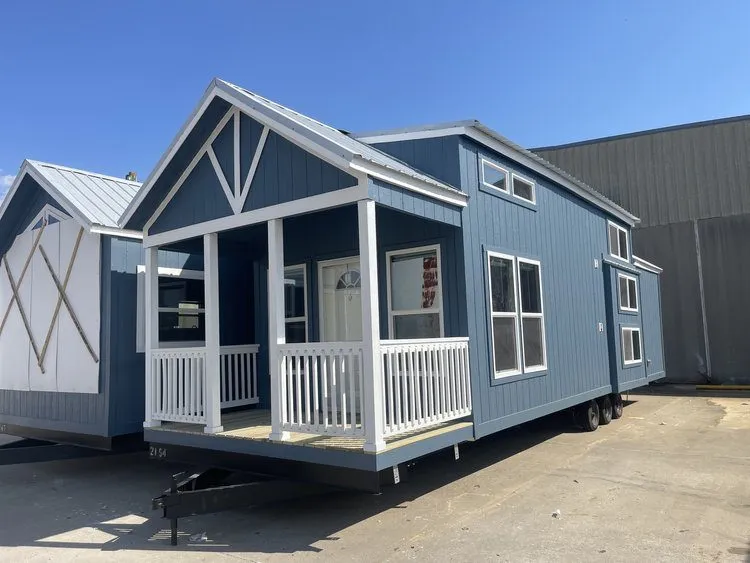Introduction: The Digital Load Master
In an era where remote work is increasingly the norm, the logistics industry offers a powerful and often overlooked opportunity: the truck dispatcher. Far from the dusty truck stops of old, today’s dispatcher is a tech-savvy, strategic negotiator who orchestrates the movement of freight from the comfort of their home office. This critical role serves as the vital link between truck drivers and companies needing to ship goods, ensuring that the nation’s supply chain keeps moving. If you are a self-motivated individual with strong communication skills and a desire to build a business or secure a remote career, learning how to become a truck dispatcher from home could be your perfect route. This guide will provide a step-by-step roadmap, from acquiring the necessary skills to landing your first client and building a thriving practice.
What Does a Truck Dispatcher Actually Do?
A truck dispatcher is essentially a freight broker or a carrier’s representative who works remotely. Their primary responsibility is to find and secure profitable loads for truck drivers and then manage the entire lifecycle of that shipment. This is not a passive job; it demands constant attention and multi-tasking. On a typical day, a home based dispatcher will scour digital freight boards to find suitable loads, negotiate rates with shippers or brokers, and then coordinate with the truck driver to ensure a smooth pick-up and delivery. They are also responsible for tracking the shipment in real-time using GPS software, managing paperwork like bills of lading and rate confirmations electronically, and troubleshooting any issues that arise on the road, such as delays, breakdowns, or accessorial charges. In short, they are the driver’s office manager, sales agent, and problem-solver all in one.
Essential Skills and Traits for Success

Before investing time and resources, it’s crucial to assess if you have the innate qualities for this high-pressure, high-reward career. Exceptional communication skills are non-negotiable, as you will be constantly negotiating with brokers and providing clear instructions to drivers, often under tight deadlines. You must be highly organized and possess sharp problem-solving abilities to handle the myriad unexpected challenges that occur in logistics, from weather disruptions to missed appointments. A strong sense of self-discipline is paramount when working from home, as there is no manager looking over your shoulder. Furthermore, basic financial acumen is needed to calculate profit margins after factoring in fuel, tolls, and driver pay. Finally, a resilient and tenacious personality is key, as you will face rejection and intense competition daily.
Step 1: Acquire the Foundational Knowledge
You don’t necessarily need a college degree, but you cannot succeed without specialized knowledge. Start by immersing yourself in the industry’s fundamentals. Understand key terms like deadhead (driving empty), detention (pay for excessive wait times), bill of lading (BOL), and freight class. Learn about different types of trailers—dry vans, flatbeds, reefers—and the freight they typically carry. Numerous online resources, including free blogs, YouTube channels, and industry publications like Transport Topics, can provide this baseline education. This self-directed learning phase is critical for building the confidence needed to communicate effectively with industry professionals and avoid costly beginner mistakes.
Step 2: Invest in Formal Training and Certification
While optional, a formal dispatch training course is highly recommended to fast-track your competence and credibility. These courses, available online from various institutions and experienced dispatchers, provide a structured curriculum covering load booking, rate negotiation, carrier setup, and the use of essential software. They often include real-world scenarios and templates for contracts and check-calls. Some programs offer a certification upon completion, which can be a valuable tool when marketing your services to potential carrier clients. It signals that you are serious and have received professional instruction, setting you apart from the many amateurs who try and fail in this business.
Step 3: Set Up Your Home Office for Efficiency

Your home office is your command center, and its setup directly impacts your productivity and professionalism. The core requirement is a reliable, high-speed internet connection, as you will be using cloud-based platforms constantly. You will need a computer with sufficient processing power and a large monitor to manage multiple windows—email, freight boards, mapping software—simultaneously. A professional-quality headset for hands-free communication is a must, as you will spend hours on the phone. Invest in a dedicated business phone line, using a VoIP service, to maintain a separation between your personal and professional life. Finally, ensure you have a quiet, dedicated workspace free from distractions to maintain focus.
Step 4: Master the Essential Software Tools
The modern dispatcher is defined by their mastery of digital tools. Your primary platform will be a subscription-based freight board, such as DAT or Truckstop.com. These are the marketplaces where you will find thousands of available loads and post your truck’s availability. You will also need a robust Transportation Management System (TMS) or dispatch software to manage your operations, track loads, and maintain carrier and customer data. For mapping and routing, tools like Google Maps and specialized trucking GPS software (e.g., Hammer) are essential for planning routes that comply with truck-specific regulations, including low bridges and weight-restricted roads.
Step 5: The Legal and Administrative Framework
To operate legally and protect yourself, you must establish your business properly. Decide on a business structure, typically a Limited Liability Company (LLC), which separates your personal assets from your business liabilities. Apply for an Employer Identification Number (EIN) from the IRS. While independent dispatchers for carriers do not need the same federal broker authority (MC Number) as freight brokers, it is crucial to have a solid Dispatch Service Agreement contract drafted by a legal professional. This contract should clearly outline your fees (usually a percentage of the load revenue), responsibilities, and payment terms. You should also consider obtaining professional liability insurance.
Step 6: Finding and Retaining Your First Clients
This is the most challenging yet most critical step. Your initial clients will likely be small to mid-sized trucking companies or owner-operators who understand the value of a dedicated dispatcher but may not have the resources for an in-house team. Start by networking on industry-specific social media platforms like LinkedIn and Facebook groups. Offer your services at a competitive rate, or even a discounted introductory rate, to secure your first few clients and build a track record. The key to retention is performance. Provide exceptional service: be proactive, communicate clearly and often, and consistently secure profitable loads. A satisfied client is your best source of referrals.
Building a Sustainable and Profitable Business
Once you have a stable of reliable carriers and a steady flow of operations, the focus shifts to scaling and optimizing your business. Systematize your processes to handle a higher volume of loads without a corresponding increase in stress. Consider using a virtual assistant for administrative tasks. As your reputation grows, you can gradually increase your dispatch fees. Continuously analyze your performance data to identify your most profitable lanes and clients. The goal is to transition from a frantic daily operator to a strategic business owner who has built a valuable, sellable asset that provides freedom and financial independence.
Conclusion
Becoming a successful truck dispatcher from home is a journey that requires dedication, continuous learning, and relentless perseverance. It is not a get-rich-quick scheme, but a legitimate and rewarding profession for those willing to master the craft. By following this roadmap—acquiring knowledge, investing in training, setting up a professional workspace, and relentlessly pursuing client satisfaction—you can build a thriving business that places you at the heart of the American economy. The road ahead is challenging, but for the right person, the destination—a profitable, location-independent career—is well worth the effort.
Frequently Asked Questions (FAQs)
Q1: How much money can a home-based truck dispatcher make?
A1: Income varies widely based on experience, client base, and effort. A beginner might earn $30,000-$50,000 annually, while an experienced dispatcher managing multiple trucks can earn $60,000-$100,000+.
- Earnings Structure: Most work on a commission basis, typically taking 5-10% of the gross revenue of each load they book. If you dispatch for a truck that generates $10,000 a week, a 7% commission would be $700 per week for that one truck.
Q2: Do I need to have a trucking or CDL background to be a dispatcher?
A2: No, a Commercial Driver’s License (CDL) or prior driving experience is not required. However, a solid understanding of trucking industry regulations, hours-of-service rules, and the driver’s perspective is immensely helpful and can be learned through training and research.
Q3: What are the biggest challenges of being a home-based dispatcher?
A3: Key challenges include:
- Finding Clients: The initial client acquisition is the biggest hurdle.
- Irregular Income: Cash flow can be inconsistent, especially at the start.
- Isolation: Working alone from home can be isolating for some.
- High Stress: Dealing with tight deadlines, driver issues, and logistical problems is inherently stressful.
- Market Fluctuations: Freight rates are cyclical; a booming market can turn slow very quickly.
Q4: What is the difference between a Dispatcher and a Freight Broker?
A4: This is a crucial distinction. A freight broker is a legally licensed entity (with an MC Number from the FMCSA) that acts as the middleman between the shipper and the carrier. They are legally responsible for the freight and payment. A dispatcher is an agent for the carrier (the trucking company). They find loads for the carrier’s trucks but do not take legal responsibility for the freight. Many dispatchers work as independent contractors for multiple carriers.
Q5: Is this a saturated field? Is there still room for new dispatchers?
A5: While the field is competitive, the trucking industry is massive and perpetually in need of efficient, reliable, and honest dispatchers. Many owner-operators and small fleets are actively seeking professional dispatch services to help them navigate a complex market. Success is less about there being “room” and more about your ability to provide superior service and build trust. Quality will always find a place in the market.









